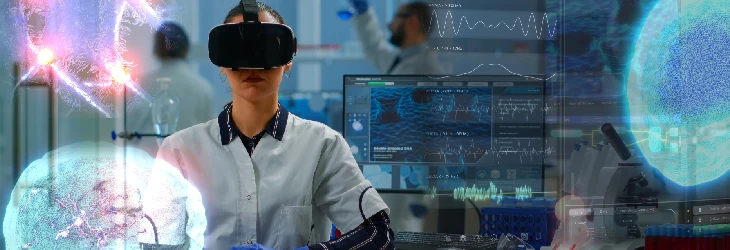Track: Advanced Methods in Cancer Research

Advanced methods in cancer research are revolutionizing the way we understand cancer biology, develop early detection strategies, and design innovative therapies. This session will spotlight cutting-edge laboratory techniques, next-generation screening tools, and state-of-the-art clinical research approaches that accelerate breakthroughs in cancer prevention and treatment. By focusing on precision oncology, molecular profiling, artificial intelligence, and global cancer initiatives, participants will gain insights into innovative strategies that drive progress in cancer therapy research and healthcare delivery. The session emphasizes how advanced methodologies are reshaping preventive oncology, improving patient survival outcomes, and strengthening global cancer prevention strategies.
High-Throughput Genomic and Proteomic Profiling
Explore how high-throughput genomic and proteomic technologies provide deep insights into cancer genetics, enabling researchers to identify biomarkers, improve cancer screening accuracy, and develop innovative cancer prevention strategies and targeted treatments.
CRISPR and Genome Editing in Cancer Therapy
Highlight the role of CRISPR-Cas9 and other genome-editing tools in oncology research, focusing on their potential to correct cancer-causing mutations, design targeted therapies, and advance personalized cancer prevention approaches worldwide.
Nanotechnology-Based Therapeutic Delivery Systems
Highlight innovative nanotechnology platforms that enable precise drug delivery, enhance the efficacy of cancer therapies, reduce toxicity, and support global cancer initiatives aimed at improving treatment accessibility and affordability.
Organoids and 3D Cancer Models
Examine the use of organoids and 3D tumor models as advanced laboratory platforms that mimic real tumor environments, supporting oncology research, drug testing, and the development of innovative cancer prevention strategies.
Liquid Biopsy and Circulating Tumor DNA Analysis
Discuss breakthroughs in liquid biopsy techniques for non-invasive cancer detection, using circulating tumor DNA to enable earlier cancer screening, improve preventive oncology efforts, and guide personalized cancer therapy research.
Artificial Intelligence in Predictive Oncology
Showcase how AI-driven predictive models analyze patient data, predict cancer risk factors, improve early detection programs, and accelerate innovative cancer therapy research to transform healthcare research and preventive oncology.
Scientific Highlights
- Public Health & Cancer Awareness
- Cancer Prevention
- Screening & Early Detection
- Vaccination & Immunoprevention
- Environmental & Occupational Factors
- Complementary & Emerging Approaches
- Genetic & Personalized Prevention
- Cancer Biology and Genetics
- Cancer Immunology
- Molecular Oncology
- Hematology in Cancer
- Cancer Diagnosis and Therapeutic Approaches
- Oncology Research and Innovations
- Advanced Methods in Cancer Research
- Cancer Epidemiology and Prevention
- Future Trends in Prevention & Research
- Pediatric Oncology


